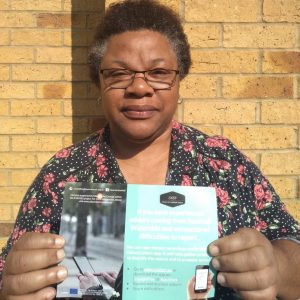D-Noses is an EU funded Horizon 2020 project aimed at developing and testing new ways of tackling odour pollution. The traditional ways of measuring odour are expensive and time consuming and perhaps most importantly do not measure the impact that odour emissions have on those living nearby. This project will use citizen science to monitor odours, following an 8-step engagement process with communities, industries and regulators. The citizen science approach will be piloted in 10 locations across Europe and beyond using free data collection tools.
Our Role
One of the roles of Mapping for Change is to identify and co-create a UK pilot to test the citizen science approach. MfC selected Southall and Hayes, west London. This is an area of rapid development where residential and industrial overlap and where residents have been complaining of bad odours for years. Odours are thought to be being emitted from the two asphalt plants and also from the redevelopment of a former gasworks site which required soil remediation.

After years of odour issues, local tensions were high and trust had broken down between the various parties. This pilot offered theopportunity to open up the discussions and begin to collect evidence to build a clearer picture. We introduced a free app – OdourCollect, developed within the project, to allow citizens to record their odour observations. Working with a campaign group (CASH) and residents of Southall and Hayes along with Ealing Council, Berkeley Group, Tarmac Ltd and FM Conway, MfC co-designed a citizen science project to understand the problem, frame the issue, collect, analyse and visualise the data (odour reports) and discuss potential future action with all stakeholders in a transparent and equitable manner.
For more information you can read the Tackling Odour Issues Case Study.
Related Projects
COMENSI - Bridging the gap between adults and civic engagement
An EU project which aims to understand the lack of participation amongst adults, in formal consultations within deprived neighbourhoods. The project aims to understand the reasons for such lack for participation and which tools and strategies could be developed to change it.
Clean Air Villages 3
Cross River Partnership is partnering with Lambeth Council for the Clean Air Villages 3 project to improve the air quality in 16 different London ‘villages’, where air pollution and population density levels are high. We’ll help KCH develop a baseline understanding of their local air quality around the hospital grounds.